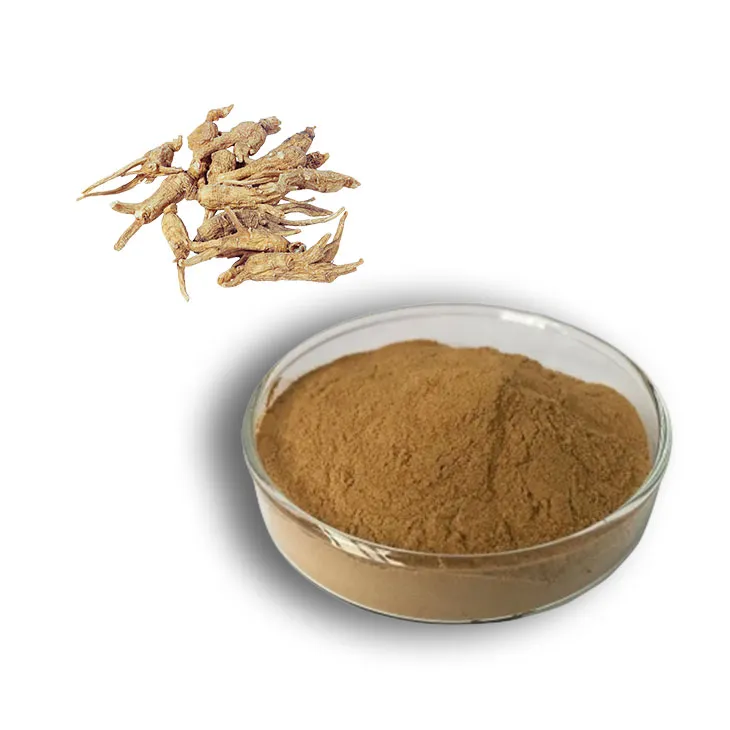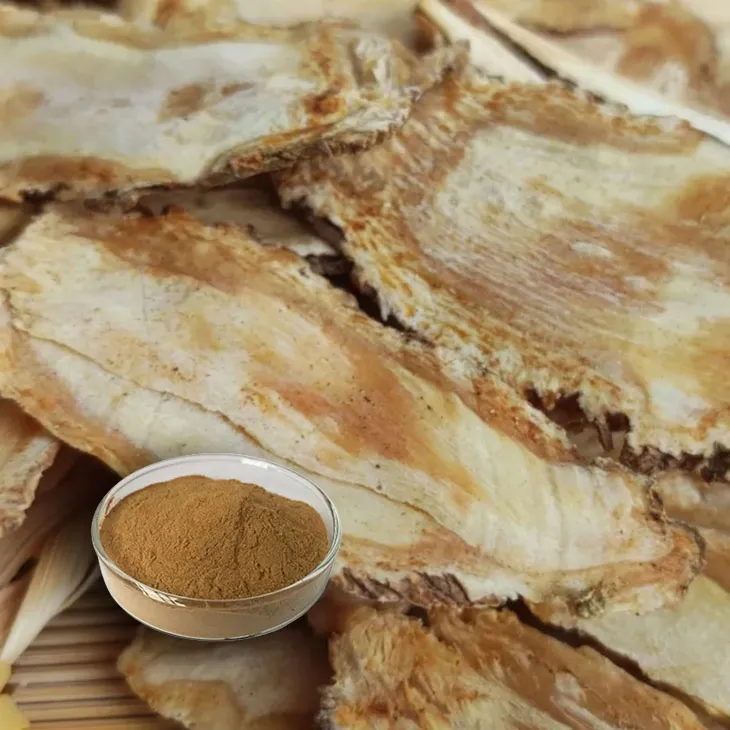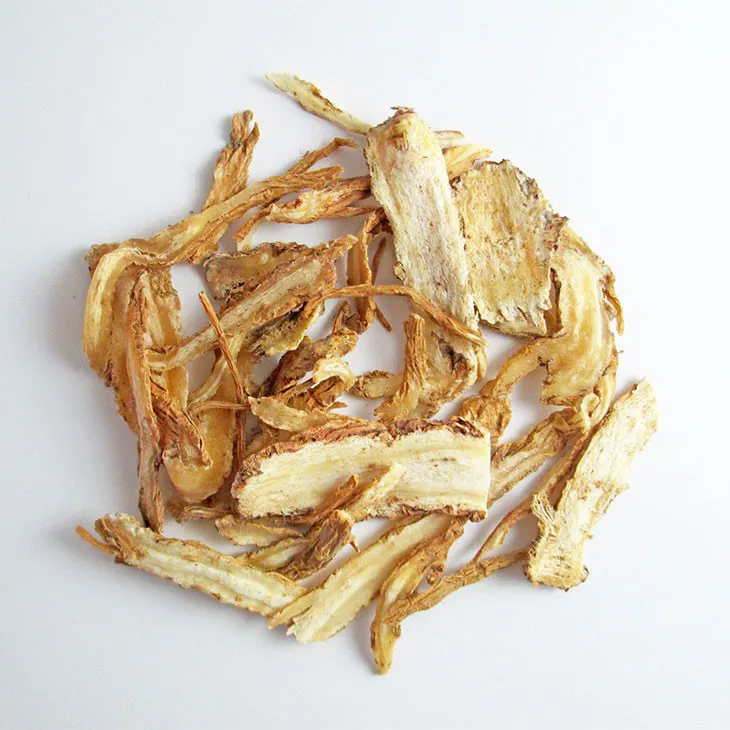- 0086-571-85302990
- sales@greenskybio.com
Angelica sinensis Extract: China vs. the United States
2024-11-29

1. Introduction
Angelica sinensis, a well - known plant in traditional Chinese medicine, has been used for centuries to treat various ailments. In recent years, its extract has also attracted attention in the United States, especially in the field of complementary and alternative medicine. This article aims to explore the differences between China and the United States in the research, application, and future prospects of Angelica sinensis extract.

2. The Origin and Traditional Use in China
China is the native place of Angelica sinensis. For a long time, Chinese people have a deep understanding of its growth environment. Angelica sinensis is mainly grown in cool and humid areas. Collection of Angelica sinensis also follows strict rules. It is usually harvested at a specific time to ensure the best quality.
In traditional Chinese medicine, Angelica sinensis is often used in holistic treatment. It is considered to be able to nourish blood, regulate menstruation, and relieve pain. For example, in prescriptions for women's menstrual disorders or anemia, Angelica sinensis is a common ingredient. The extraction process in China is also based on traditional methods, which aim to preserve the overall medicinal properties of the plant.

3. Research and Exploration in the United States
The United States, with its advanced scientific research facilities, has been exploring the potential of Angelica sinensis extract in new therapeutic areas. American researchers are more interested in isolating the active components of Angelica sinensis extract. For example, they are trying to identify specific compounds that may have anti - inflammatory or antioxidant effects.
In the context of complementary and alternative medicine in the US, Angelica sinensis extract is being studied for its potential role in treating chronic diseases such as arthritis and cardiovascular diseases. The research approach in the US is mainly based on modern scientific methods, including in - vitro experiments and clinical trials.

4. Different Strategies
4.1 China's Holistic Approach
China's strategy towards Angelica sinensis extract is deeply rooted in the concept of holistic medicine. Chinese medicine believes that the human body is an organic whole, and the efficacy of Angelica sinensis extract is not only determined by its chemical components but also related to the overall balance of the body. Therefore, Chinese traditional medicine often uses Angelica sinensis in combination with other herbs to achieve better treatment results.
For example, in a traditional Chinese medicine formula for treating menstrual problems, Angelica sinensis may be combined with other herbs such as Rehmannia glutinosa and Paeonia lactiflora. This combination can regulate the qi and blood in the body, rather than simply targeting a single symptom.
4.2 The United States' Component - Oriented Approach
In contrast, the United States focuses on isolating and studying the active components of Angelica sinensis extract. American researchers believe that by identifying and understanding these active components, they can develop more targeted drugs or therapies.
For instance, if a certain compound in Angelica sinensis extract is found to have anti - inflammatory properties, the researchers may try to purify this compound and study its mechanism of action in detail. Then, they may develop new drugs based on this compound for the treatment of inflammatory diseases.
5. Quality Control
5.1 Quality Control in China
In China, quality control of Angelica sinensis extract mainly follows traditional and modern combined methods. Traditional quality control includes the inspection of the appearance, smell, and taste of Angelica sinensis. For example, high - quality Angelica sinensis should have a characteristic aroma and a certain texture.
Modern quality control methods in China also play an important role. Techniques such as high - performance liquid chromatography (HPLC) are used to detect the content of main components in Angelica sinensis extract. This helps to ensure the consistency and quality of the extract.
5.2 Quality Control in the United States
In the United States, quality control of Angelica sinensis extract is more strictly regulated by modern scientific standards. The Food and Drug Administration (FDA) has certain requirements for the purity, safety, and efficacy of herbal extracts.
American laboratories use advanced analytical techniques such as mass spectrometry to accurately identify and quantify the components in Angelica sinensis extract. This is to ensure that the products on the market meet the high - quality and safety requirements.
6. Future Prospects
6.1 In China
In the future, China is likely to continue to inherit and develop its traditional medicine concepts related to Angelica sinensis extract. With the development of modern technology, China may also integrate more modern scientific research methods into the study of Angelica sinensis extract.
For example, Chinese researchers may use omics technologies to further explore the mechanism of action of Angelica sinensis extract at the molecular level. At the same time, China may also promote the internationalization of traditional Chinese medicine products containing Angelica sinensis extract, making them more widely recognized in the international market.
6.2 In the United States
The United States will probably continue to explore the potential of Angelica sinensis extract in the field of complementary and alternative medicine. With the increasing interest in natural products, the US market for Angelica sinensis extract may expand.
American researchers may further study the interaction between Angelica sinensis extract and the human body, especially in terms of its impact on the gut microbiota. This may lead to the development of new therapeutic strategies for various diseases.
7. Conclusion
In conclusion, China and the United States have different approaches to Angelica sinensis extract. China focuses on holistic treatment and traditional quality control methods, while the United States emphasizes the isolation of active components and modern quality control. Both countries have their own advantages in the research and application of Angelica sinensis extract. In the future, with the development of globalization and the increasing exchange of scientific research, there may be more cooperation opportunities between the two countries in this field, which will promote the further development and application of Angelica sinensis extract.
FAQ:
Q1: What are the main differences in the understanding of Angelica Sinensis extract between China and the United States?
China, as the origin of Angelica Sinensis, has a comprehensive understanding of its growth, collection, and extraction based on long - term traditional medicine knowledge. The United States, with its advanced scientific research facilities, is more focused on exploring the potential of this extract in new therapeutic areas. China emphasizes holistic treatment concepts related to it, while the US is more concerned with isolating active components and their specific pharmacological effects.
Q2: How does China ensure the quality control of Angelica Sinensis extract?
In China, quality control of Angelica Sinensis extract is based on traditional knowledge and modern scientific methods. It includes strict regulations on the growth environment of Angelica Sinensis, proper collection time and methods, and advanced extraction and purification techniques. Additionally, Chinese pharmacopoeia and relevant regulatory standards play an important role in ensuring the quality of the extract.
Q3: What are the US strategies for researching Angelica Sinensis extract?
The US strategy mainly focuses on using its advanced scientific research facilities. Scientists in the US are interested in isolating active components from Angelica Sinensis extract. They conduct in - depth research on the specific pharmacological effects of these components through modern experimental techniques such as cell and animal models, aiming to find new therapeutic applications in areas such as complementary and alternative medicine.
Q4: What are the future prospects of Angelica Sinensis extract in China?
In China, the future prospects of Angelica Sinensis extract are promising. With the development of modern technology, traditional Chinese medicine concepts associated with it will be further explored and innovated. It may be used in more fields of disease prevention and treatment, and will also be more widely promoted in international markets with the globalization of traditional Chinese medicine.
Q5: What are the challenges faced by the United States in the research of Angelica Sinensis extract?
One of the main challenges in the US is the lack of in - depth understanding of the traditional use and holistic concepts of Angelica Sinensis. Although the US has advanced scientific research facilities, without fully grasping the traditional knowledge, it may be difficult to comprehensively evaluate the potential of the extract. Additionally, issues such as differences in regulatory systems compared to traditional Chinese medicine may also pose challenges to the research and application of Angelica Sinensis extract.
Related literature
- The Pharmacological Properties of Angelica Sinensis Extract: A Review"
- "Angelica Sinensis in Traditional Chinese Medicine and Its Modern Applications"
- "Research on Active Components of Angelica Sinensis in the United States: Current Status and Future Directions"
- ▶ Hesperidin
- ▶ citrus bioflavonoids
- ▶ plant extract
- ▶ lycopene
- ▶ Diosmin
- ▶ Grape seed extract
- ▶ Sea buckthorn Juice Powder
- ▶ Beetroot powder
- ▶ Hops Extract
- ▶ Artichoke Extract
- ▶ Reishi mushroom extract
- ▶ Astaxanthin
- ▶ Green Tea Extract
- ▶ Curcumin Extract
- ▶ Horse Chestnut Extract
- ▶ Other Problems
- ▶ Boswellia Serrata Extract
- ▶ Resveratrol Extract
- ▶ Marigold Extract
- ▶ Grape Leaf Extract
- ▶ blog3
- ▶ blog4
-
100% Pure Organic Baicalin.
2024-11-29
-
Organic Cordyceps Extract Powder Suppliers.
2024-11-29
-
Chinese cactus extract suppliers.
2024-11-29
-
Wholesale Rosemary Extract Suppliers.
2024-11-29
-
Clove Powder
2024-11-29
-
Curcumin Extract
2024-11-29
-
Ginseng Root Extract
2024-11-29
-
Acerola Juice Powder
2024-11-29
-
Dandelion Leaf Extract
2024-11-29
-
Hedyotis Diffusa Extract
2024-11-29
-
Gynostemma pentaphyllum extract
2024-11-29
-
Black Rice Extract
2024-11-29
-
Saw Palmetto Extract
2024-11-29
-
Grapefruit Seed Extract Powder
2024-11-29





















